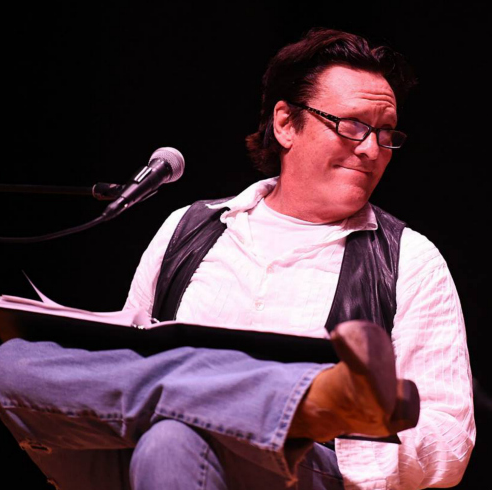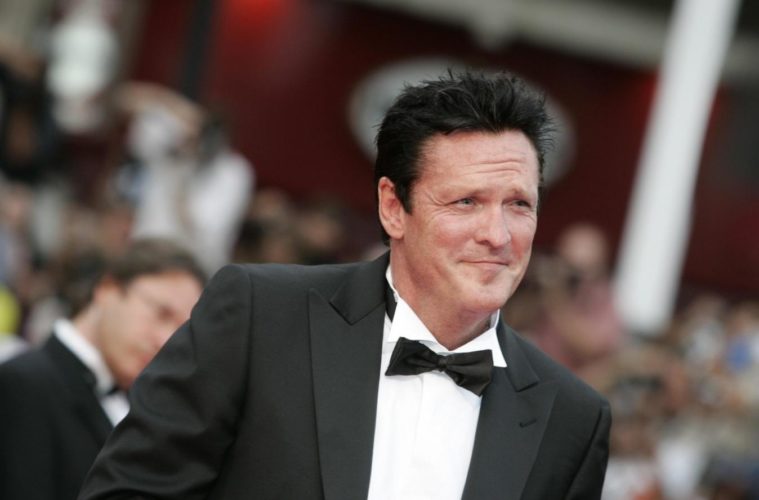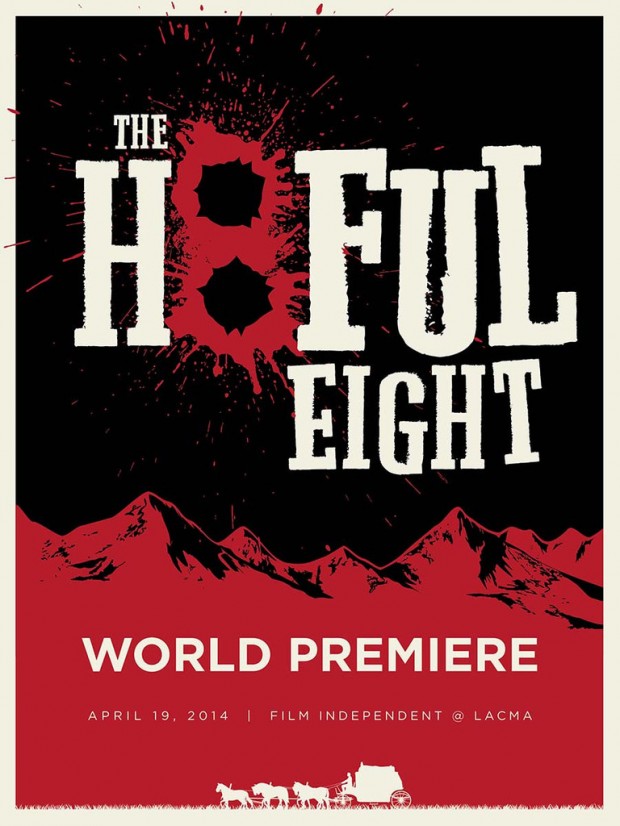
When one receives an opportunity to interview Michael Madsen, the offer is immediately taken, however little notice there is of any specific discussion topic. With an onscreen vibe that feels plucked right out of some ‘50s tough-guy picture and, even if by accident, placed into the modern world, he’s always stood out. The reasons are numerous — it doesn’t hurt when this generation’s most-influential filmmaker took a liking to you two times over — but it may be, above all else, simply on account of genuine talent.
It was only natural that we’d ask about what may or may not be happening with Quentin Tarantino’s The Hateful Eight, but plenty else necessitated an exchange. Whether it’s speaking of his participation in a fascinating-sounding, Redford-directed documentary to his long career in writing poetry, Madsen proved an open, polite speaker, far removed from the screen personality he’s cultivated over countless projects.
The Film Stage: It seems like the Western is on your mind a lot lately. I was hoping, first of all, that you could just give us a quick update on the status of Tarantino’s (possible) next project.
Michael Madsen: Well, I mean, I think it’s a foregone conclusion, being that, with everything which has come up to now, everybody would sure like to see it get made. I can’t speak for Quentin — I’m not his spokesperson — but I think that, having done a live read, having had the reception that it’s had, it looks to me like it should be shot; it looks to me like they’re most likely going to go forward with it, but I can’t be the person to pull that trigger. You know what I’m saying?
Sure. But you must have been excited when this contact came in and, finally, you’d do at least some version.
 Well, listen: I was one of the original persons he gave the script to. I hadn’t heard from him since before Django, so… I went over there, to his house, to pick that up; it was obviously for me. Then I read it and it was, like, one of the most fascinating things I’ve ever read. It’s such a complex story and it has a little piece of every film he’s ever done in there, in a very subtle way. It’s fascinating, it’s a great part, and I like westerns. It’s a good role for me, but then, of course, they had that great big debacle about somebody leaking the script on him. There were a few people; they weren’t sure who did that, and I suppose I was on the most-wanted list.
Well, listen: I was one of the original persons he gave the script to. I hadn’t heard from him since before Django, so… I went over there, to his house, to pick that up; it was obviously for me. Then I read it and it was, like, one of the most fascinating things I’ve ever read. It’s such a complex story and it has a little piece of every film he’s ever done in there, in a very subtle way. It’s fascinating, it’s a great part, and I like westerns. It’s a good role for me, but then, of course, they had that great big debacle about somebody leaking the script on him. There were a few people; they weren’t sure who did that, and I suppose I was on the most-wanted list.
I remember, I called him up — I was in Italy at the time; I was shooting a film in Italy — and I said, “Quentin, Jesus Christ, people think I have something to do with this thing.” And he laughed. He thought it was funny; he was laughing on the phone. [Laughs] He goes, “Michael, I know that it wasn’t you.” [Laughs] And I said, “Well, goddammit, why don’t you fucking say something to somebody? Because I’m on the hot seat here, man.” So I guess that having a public reading of the script would be the most public statement to make, that I certainly wasn’t involved. Somebody photoshopped a picture of me on the Internet giving a copy of The Hateful Eight to Edward Snowden. [Laughs] I thought that was really funny. It really got deep: I was getting hate mail on my Facebook, and it was tragic, but I think we’ll shoot that picture. I’m pretty sure of it, yeah.
Reports said Tarantino’s face was one of elation as the reading progressed. Was he clearly excited by it when working behind the scenes?
You know, I have to say: it’s one thing getting it and reading it and talking about making it, but to go into rehearsals, and to sit there with the cast and start reading through it is when it really, actually starts to come to life. When you hear the different voices and the different personalities and the different energies of the room, when people start bringing this character to life. To see Quentin so excited and so, kind of like… you know, he’s very expressive and he’s very, very jazzed.
You’d think that he’d never made a film before. He has the energy and the drive of someone… he’s very kind of… I mean, it was amazing to see the amount of energy that he has, that all of a sudden comes out of nowhere. His desire to see these characters come to life, it was a great experience. Just being in the room with some of these guys was great. Just watching the different directions it could go, and have him come in there and reguide you through the way that he sees it. I think he’s very careful when he’s casting things, and I think he puts people in parts when he knows they’re going to best express what he wrote.
Mr. Blonde and Mr. Orange are back in a room together, which is great.
Yeah, which was crazy. When I saw Tim [Roth], we gave each other a great big chest-hug, and I suddenly, right in my brain, immediately I snapped on this memory: the last time me and Tim hugged like that, we were both covered with blood, and we actually got stuck together. Because, you know, we had the white shirts on, and we were in blood — it’s stage blood, and it’s very sticky. We got in this big embrace with each other, and we got stuck together. [Laughs] It was pretty funny. I think somebody got a hose to separate us.
I could talk about your Tarantino collaborations all day, but I’m curious about this: the press release concerning this interview mentioned a project called The Western, which I’m led to believe you’re working on with Robert Redford.
Well, you know, he’s been doing this documentary about the history of Westerns, and I did Wyatt Earp and I did High Noon. I did a big Western in Spain, called Renegade; it was Vincent Cassel, Juliette Lewis, and Ernest Borgnine, God bless him. It was a big, big Western. He loves cowboy pictures, and so I got included in the list of people who are going to be interviewed to talk about Westerns. I’m looking forward to that; I really am. The Western was a big part of my life growing up, and my desire to be an actor.
Having the opportunity to sit down with Redford is no small one, obviously. Were you at all surprised when being approached about it?
Well, no, I wasn’t surprised — I was pleased. I was flattered. I was happy that they did think of me. I mean, I’ve done a lot of pictures — I’ve been doing this for a long time, and, a lot of times, people don’t think of me for those types of shows or those types of documentaries. I often feel a bit left out from some of these historical remembrances, so I was happy. I was glad that they called me, and I hope that they’ll have a good contribution.
But now you also have another volume of poetry.
I just had a new book come out. It’s called Expecting Rain, and, yeah… it’s probably the last one I’m going to write, because I don’t want to repeat myself. It’s the fourth book I’ve written, and I never really planned on being a writer in the first place, so they were all a bit accidental. But I’m not sorry I did them: I think there’s a lot of validity in there, and I think they’re pretty good as they are. But it was something I did as kind of a sideline.
Do you ever get tired of people’s surprise? I was a bit surprised, myself, but there might be something kind of nice about subverting people’s expectations.
Yeah, yeah, there is a bit of an amusement from people. I mean, the biggest thing I worried about when I started out was, I thought that folks might think the only reason they’d have an interest in reading them is because they were written by a film actor. But I wanted them to be legitimate; I wanted my writing to be legitimatized, and I wanted to be thought of as a writer — not just as an actor who wrote books. There’s a very fine line to cross there, because I know that there’s an interest, you know, because of the film that I’m a film actor — it becomes a curiosity to read anything that I wrote — but, then, at some point, you kind of want it to have its own identity. You want it to be appreciated for that, because it’s far, far, far away from any film acting thing.
Is there a point where it’s clearly a more-personal exercise than acting?
Well, I was just going to say that; that word was right in my head when you said it. It is a lot more personal; it’s a heck of a lot more personal. I love it. When I go back and I read stuff that I wrote years ago, I’m really happy that I put it down, because these things are lost forever — if you don’t write it, they’re lost forever, and you can only have this notion once in a while. There’s sometimes a great notion, and if you don’t write it, it’s lost.
I couldn’t have this interview if I didn’t ask, rather selfishly, for you to contact Quentin Tarantino and ask that he finally release Kill Bill: The Whole Bloody Affair. If I could have an intermediary, at least — that should count for something.
[Laughs] That one’s about five hours long, buddy. Great, great picture, man — that was great, to be a part of that one. It’s an ass-kicker, man, it really is. I’m sure it’ll happen one of these days, knowing him.
Michael Madsen currently has over a dozen projects in various stages of production; The Hateful Eight‘s live read poster can also be acquired as we wait for further details.



